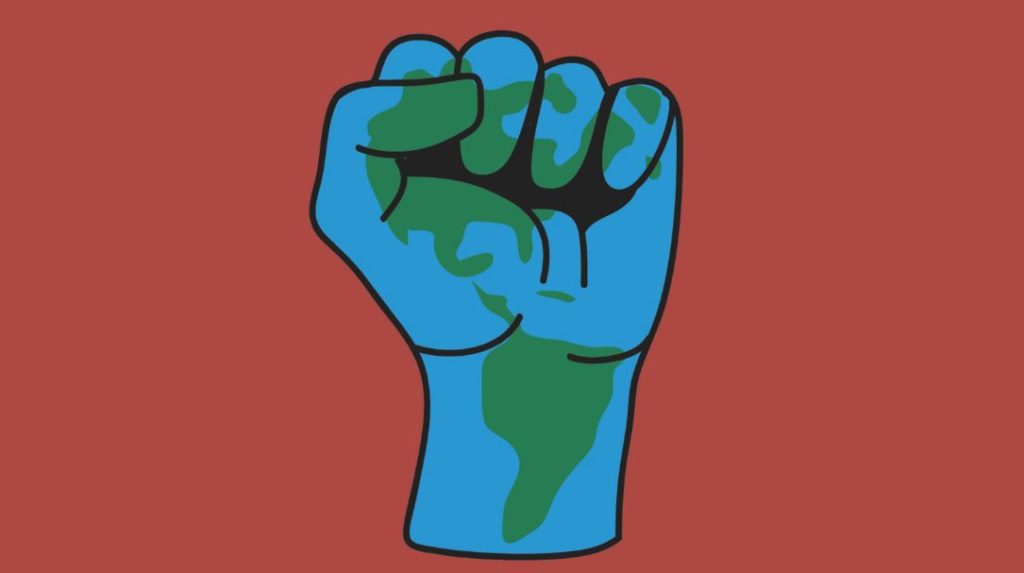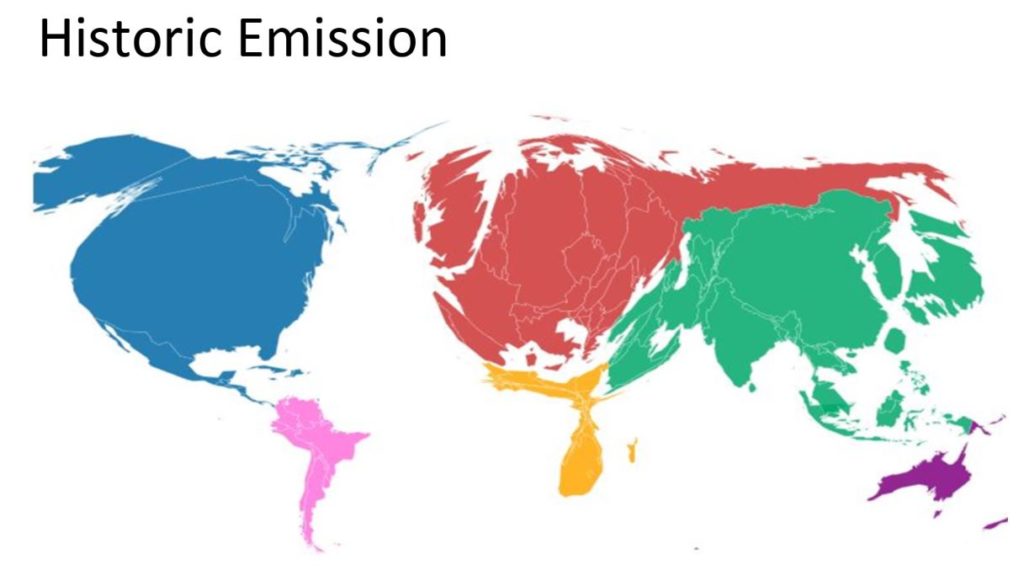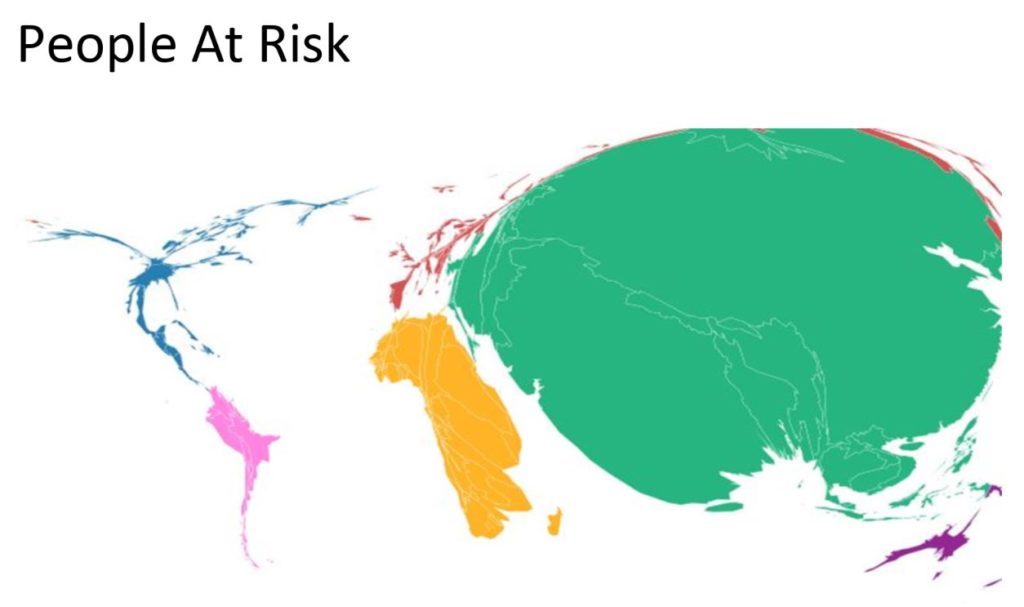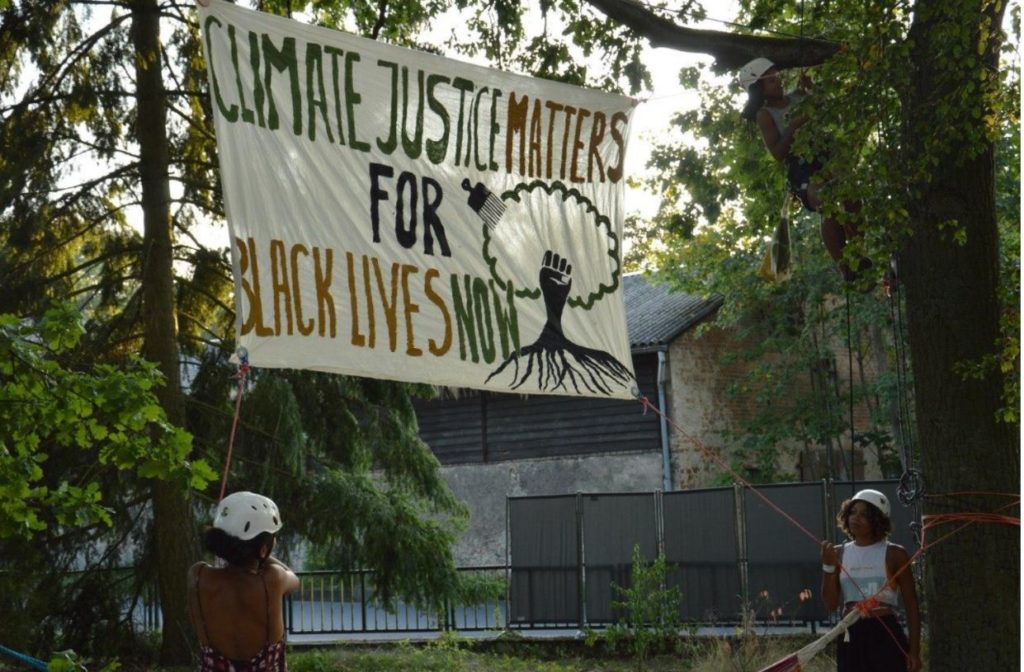
The climate movement in mainstream media is dominated by a sensationalist attitude that urges society to take action before it is too late. According to leading scientists, we have just a decade to change our bad habits and turn to a greener, cleaner economic model if we want to save Earth and humanity’s place in it. However, for some communities around the world it is already too late and their struggles have not received the attention they deserve. As such, on 27 February, 2020, GreenBuzz Berlin held an event to highlight the voices and experiences of black, indigenous and people of colour (BIPoC). As Black History Month came to a close, the event aimed to highlight perspectives from BIPoC communities around the world regarding sustainability and the climate crisis.
The evening began with Tonny Nowshin, a climate activist originally from Bangledesh who questioned whether the climate crisis is a culmination of colonial exploitation. When looking at the facts, the answer is clear. Many of us are familiar with maps that depict historical emissions in contrast to the environmental consequences of climate change. These maps clearly show how those most responsible for climate change (i.e. industrialized, wealthier countries) are often least vulnerable to its effects. Wealth, accumulated from centuries of exploitation and oppression – namely, the slave trade and the pillaging of native lands and people in South America, Africa and Asia – has produced a way of life that allows a small percentage of the human population to live in excess while the majority lives in poverty. Such wealth places some nations in a more capable position to respond to climatic changes and natural disasters exasperated by global warming.


Knowing our histories, acknowledging legacies
Modern climate movements are attracting young people to push for change in a new wave of climate activism that is timely and truly needed. We must, however, remember the many examples of local resistance movements that precede us. These include the women-led Chipko Movement (1973) against the consequences of deforestation in India, the Warren Country Movement (1982) which is known as one of the first environmental justice cases in the US, and the indigenous people’s movements at annual United Nations gathering such as the UNFCCC Conference of Parties. These movements represent groups that are continuously fighting, all over the world, to protect land rights and amplify vulnerable voices. As the international community searches for solutions that shift focus from the capitalist, extractivist world order – which is the true root of the problem – it is often vulnerable communities that suffer the most.

November 14, 2018; Associated Press
Indigenous communities are of the most affected by exploitative practices disguised as claims of conservation. Such neoliberal claims have resulted in global land grabs of historically communal land and escalated violence against indigenous women and girls. Our second speaker of the evening, Karin Hermes, an independent consultant, speaker and writer, spoke to this phenomenon. She shared examples from the Wetʼsuwetʼen First Nation in British Columbia, where indigenous land protection is linked directly with indigenous sovereignty, but is often deemed more violent than other movements for environmental protection. This is because such struggles aim to directly disrupt business as usual, challenging the dominant mantra of power over people. Karin also spoke of the Philippines, which has seen the highest number of murdered or disappeared environmental defenders reported in the last years. Half of these deaths were related to agribusiness. Standing up to the status quo – whether it be a multinational cash crop company or a new oil pipeline – has shown that true, on the ground climate activism is dangerous.
Here in Germany, the first BIPoC environmental group – Black Earth BIPoC Environmental & Climate Justice Collective – was founded recently with the aim of decolonizing the conversation around climate change. Although awareness around climate change is quite strong in Germany, the founding members of Black Earth were frustrated by the lack of intersectional perspectives within the climate movement. They found it difficult to have genuine conversations about climate change that included discussions of sexism, racism and colorism, or the inclusion of BIPoC in discussions of veganism, as these were often taking place in majority-white spaces. They therefore aim to create their own spaces where such topics could be discussed freely and opening among their peers.

The collective is inspired by Black-led movements from around the world, including the Ogoni protests against the exploitation of resources in the Niger Delta and the Green Belt Movement in Kenya led by Wangari Maathai. Their activities revolve around deconstructing societal structures and ideas built up by colonialism, and helping one another and their peers to see the intersections of oppression related to gender, race and the environment, first conceptually (the action of building knowledge) and then with direct action (applying such knowledge). Activities of the collective include climbing training, banner drops, tree planting, educational workshops or simply creating safe spaces for BIPoC in majority-white actions, such as those led by Germany’s Ende Gelände or at KlimaCamp Leipzig.
Addressing Intersectionality and Inequality
The importance of intersectionality is paramount in all social endeavors, but especially in the environmental and climate movement. The last speaker of the evening, Wadzanai Motsi-Khatai from the Center for Intersectional Justice, highlighted how polarizing individual “good” and “bad” actors in efforts of sustainability actually diverts from an understanding of the institutional, structural and historical oppressions that either limits or supports one’s ability to practice sustainability in their every day life. Wadzanai spoke of three systems – capitalism, patriarchy and racism – which force some to be wasteful simply because they are trying to survive. These systems, as the underlying roadblocks in the advancement of the climate movement and justice more broadly, are therefore what need to be altered.
Dr. Emilia Roig is the founder and director of the Center for Intersectional Justice (CIJ)
Fast forward to today, as the world finds itself in the middle of a global pandemic. Governments have had to make hard decisions, which have resulted in almost every single human being on the planet being asked, if not forced, to remain home. Only “essential” workers are to continue working, causing economic hardship for many. What has become painstakingly obvious, and perhaps the only silver lining to the current chaos, is that systems that we have always been told are necessary are failing right before our eyes. Privatization of health care systems, inability to pay living wages and provide paid sick leave, the 40+-hour, five-day, in-office work week – all of these things are being challenged right now in the face of a global health crisis, and should be equally challenged following it as well.
There are alternatives to the status quo. These alternatives do not incorporate capitalism in its current form but are instead rooted in solidarity. They do not uphold the patriarchy, but are instead focused on decentralized and shared power. They do not tolerate racism, and instead, celebrate all of humanity. Tonny mentioned some philosophical paradigms and activist movements such as Ubuntu, the Zapatistas movement, Buen Vivir and Ecowaraj that show such alternatives are possible. All of them in some way put Earth, community and nature at their core and demonstrate that “development” is still possible without exploitation and human greed. It is something that the current COVID-19 pandemic is highlighting as well: that it is indeed possible to restructure society and development should we have the political will to do so. That political will must work to craft intersectional policies that reflect our uniqueness as individuals as equally as our strength as community. As such, I leave you with the closing words of Wadzanai: “If systems of oppression can mutually reinforce one another, then systems of liberation should too.”
** Editor’s Note: While there are many other examples that could be have been referenced, the examples and references used in this article are limited to those mentioned by the event’s speakers. We welcome you to use the comments section to add to the discussion.
- Building a Local Food Economy: Resources & Event Recap - April 24, 2023
- #027 – ReHats – upcycling for more life & sustainability in the German hat market! - March 26, 2022
- #026 –Climate Farmers – Scaling regenerative agriculture across Europe - September 7, 2021

Great work on your blog post! The content was relatable and resonated with my own experiences. I appreciated the practical advice and the actionable steps you shared. To gain further insights, click here.